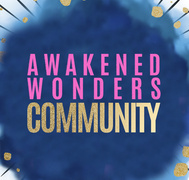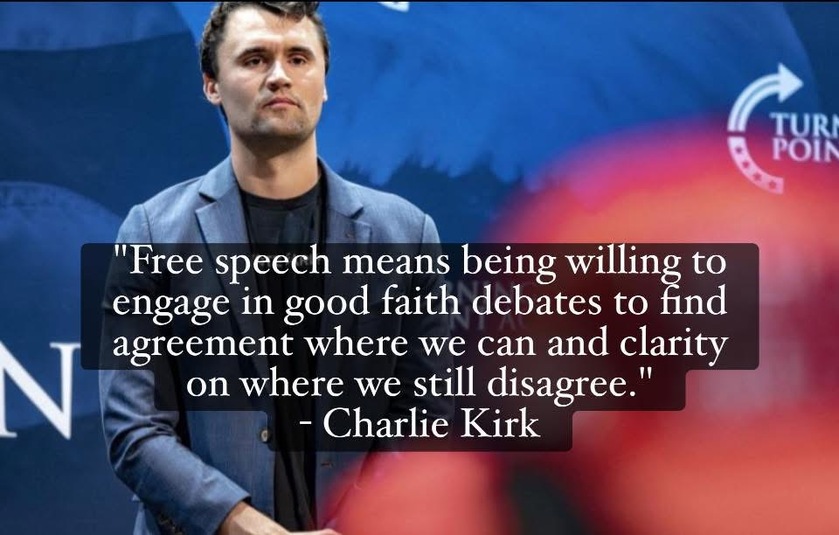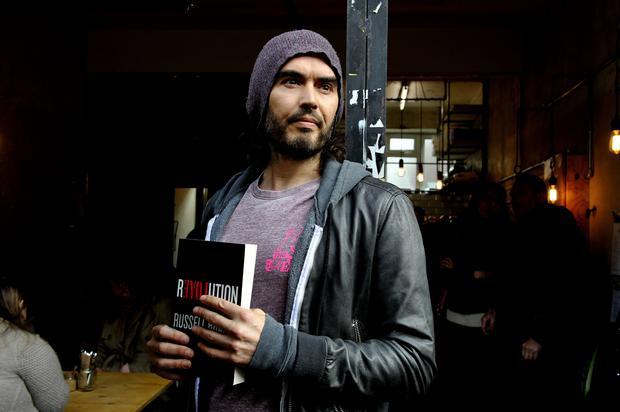Anchored in the Storm: Renewing Our Nation Through Faith and Unity
Read Acts 27:1-44
"And when it was decided that we should sail for Italy, they delivered Paul and some other prisoners to a centurion of the Augustan Cohort named Julius."
Acts 27 recounts Paul’s perilous sea voyage to Rome as a prisoner, a narrative filled with uncertainty, danger, and divine intervention. It’s a vivid illustration of human reactions to crisis; fear, desperation, self-preservation, and faith amid the unknown.
The journey begins with a sense of order. Paul, along with other prisoners, is handed over to Julius, a Roman centurion from the Augustan Cohort. They’re boarding ships, navigating ports like Sidon, Myra, and Fair Havens. But early signs of trouble emerge. They encounter contrary October winds that slows them down. Paul, sensing their impending disaster, warns the crew:
"Men, I see that the voyage will be with injury and much loss, not only of the cargo and the ship, but also of our lives" (v. 10)
Operating from optimism mixed with overconfidence, the group downplays the risks, relying on human expertise and majority opinion rather than Paul's prophetic insight. It’s a classic human tendency in crisis, to push forward, assuming things will improve, even when warning signs point to disaster. Men will trend towards bravado and chase the wind instead of being smart.
How often do we ignore wise counsel because it doesn’t align with our plans?
A gentle breeze lures them out, but soon a "nor'easter" hurricane-force wind strikes, drives the ship uncontrollably. Days without sun or stars leave them hopeless:
"we finally gave up all hope of being saved" (v. 20).
And then we see the panic set in. The sailors act frantically, stripping the ship to stay afloat, but despair sets in as the crisis drags on. The unknown, no visibility, no control, breeding fear. This mirrors how we might react in our personal storms: shedding "cargo" (habits, self-control, relationships, clear-headed thinking) in desperation, yet feeling utterly lost without a clear path. The men lose faith, tensions escalate, and self-preservation supersedes unity.
As I write my daily ongoing devotion here in the book of Acts I'm reminded by this word from God about faith in crisis. And it's very timely. I'm instantly seeing a poignant, real-time parallel to the chaos in Acts 27, where human responses to crisis reveal our deepest instincts. Just as the storm exposed fear, division, and desperate acts aboard Paul’s ship, the assassination of Charlie Kirk on September 10, 2025, at Utah Valley University has unleashed a torrent of reactions that echo those biblical themes.
Charlie Kirk, a husband and father, such a young guy for having done so much. A 31-year-old conservative activist, and founder of Turning Point USA, was fatally shot by a wicked sniper's bullet during a campus event labeled "The American Comeback Tour." This tragedy, was deemed as a "political assassination" by Utah Governor Spencer Cox, and has amplified the divisions of our age. Breeding divisive responses ranging from unified condemnation by supporters to celebration from wicked foolish people on the Left. And of course, in the hours following his assassination we've witnessed calls for restraint, and demands for retaliation.
Circling back to today's study, in the biblical account, as the ship nears land, sailors attempt to flee in the lifeboat, prioritizing self-preservation over the group. This highlights how crisis can fracture communities, breeding selfishness and suspicion. This can be seen today as well as the nation wakes from the storm of yesterday's uncertainty, shock, and fear. Today’s "storm" around Charlie Kirk’s death mirrors this biblical account. Amid our grief, reactions have splintered our society. Leaders across the spectrum have condemned the violence. These voices advocate tamping down the rhetoric, much like Paul’s call for unity to survive. But there's a sense as well that we've been on this boat trip before, maybe one too many times. Maybe this time we are being called to react differently.
Reflect on this: our darker impulses are inevitably going to emerge, akin to the sailors’ flight. Some on the far-left have celebrated Charlie's death online, with posts on platforms like Tic Tok, Bluesky and Reddit cheering it as a "win" or mocking his family, reactions described as "demonic" by critics. And frankly rightly so. There is nothing good in these fools.
Ukrainian channels reportedly gloated, linking it to Charlie's views on foreign policy. Meanwhile, on the right, some of the movement's more extreme characters have ramped up calls for violence, with figures like Oath Keepers founder Stewart Rhodes vowing to rebuild militias for protection, and online posts declaring "war is here" or demanding retribution.
This stirring up of hatred risks escalating the crisis, turning grief into vengeance, just as unchecked panic could have doomed Paul’s ship. And worse then that, it is a contrary wind (belief), contrary to the man who was Charlie Kirk.
The risks?
Whats truly at risk?
Charlie Kirk’s work, mobilizing young conservatives and promoting Christian values, even up to his final event, is now being weaponized: celebrated by detractors as justice served, and by supporters as martyrdom fueling anger. It’s a reminder of the biblical warning: in crisis, self-preservation (or ideological isolation) leads to loss, while unity saves.
Fractures Exposed, Unity Tested
In the biblical account, as the ship nears land, sailors attempt to flee in the lifeboat, prioritizing self-preservation over the group. This highlights how crisis can fracture communities, breeding selfishness and suspicion. Paul’s firm intervention, "Unless these men stay with the ship, you cannot be saved" (v. 31), forces a recommitment to unity, cutting away escape routes to ensure our nation's collective survival.
As the nation wakes from the storm of yesterday’s uncertainty, shock, and fear. Today’s "storm" around Charlie Kirk’s death mirrors this biblical account. Amid our grief, reactions have splintered our already divided society even deeper. Eyewitness accounts and video analysis reveals this chaos. The shooter (murderous coward) is still at large amid an intense manhunt by police and FBI. These unresolved unknowns breed more suspicion, much like the starless nights that drove the boat crew to despair in Paul's travel.
But there’s a sense as well that we’ve been on this boat trip before, maybe too many times, echoing recent waves of violence, from assassination attempts on President Trump in 2024 to the killing of the UnitedHealthcare CEO last December, not to mention the senseless murders in our churches, schools, and on lightrail trains. And social media amplifies these fractures: some on the fringes celebrate the tragedy with "demonic" glee, posting cheers like "Hooray, now maybe TRUMP?" or mocking the bullet’s "fate." We are a sick people right now. Sick and tired. Sickened by it all.
Maybe this time we are being called to react differently. Instead of fleeing into our radicalized echo chambers or lashing out, Paul’s model urges us to "stay with the ship", committing to dialogue, prayer, and a shared humanity. That's what Charlie was doing when the sickness attacked. His death is not necessarily the death of civility, instead it can invite us into renewal through rejecting violence outright, not designing violence to meet the violence.
Choosing Renewal Over Retaliation
Shifting now from the storm’s chaos to a hopeful dawn. As we awaken on September 11, 2025, a date already heavy with national memory, the aftermath of Charlie Kirk’s assassination invites our introspection. Up until his final moments at Utah Valley University, Charlie was embodying this, hosting "The American Comeback Tour" to mobilize young conservatives through conversation, not confrontation, emphasizing Christian values and civic engagement. So now what are we going to do, abandon his vision for echo chambers of hate?
In Acts 27, the boat crew’s survival hinged on rejecting selfish escape and embracing Paul’s vision of mercy and trust. The centurion’s decision to spare the prisoners (v. 43) exemplifies this renewal: mercy amid potential slaughter, leading all to safe shores. Similarly, today’s responses can redefine the narrative. This echoes Paul’s nourishment scene (vs. 33-36), where breaking bread together fosters strength for the ordeal ahead, not more storm, but resolution. Not inviting civil unrest and war, but fellowship, dialogue, and wisdom.
By viewing this attack as a "cultural sickness," we confront the deeper ailment: a culture of echo chambers that breeds suspicion and extremism. We can track all these tragedies to this sickness. Charlie's legacy, as tributes pour in, reminds us of his push for unity among conservatives while engaging critics, work that now calls us to extend that outward and onward. Rejecting "violence to meet violence" means cutting the ropes of retaliation, as the soldiers did (v. 32), and committing to prayerful dialogue instead. It echoes Paul's argument that we should never repay evil with evil.
Embrace Renewal Over Repetition
These familiar storms tempt our old self reactions, division, fear, revenge. This time you want a different outcome? Pursue holiness like Charlie did. Let Charlie's death propel us toward healing the "sickness" through civility and a shared humanity. Paul’s unity saved lives; apply it here by rejecting the echo chambers and violence, fostering dialogue as Charlie did. Crises invites renewal. God’s promise in the wreck assures us: even in tragedy, purpose emerges when we reject violence outright.
Wrestling with Pacifism in the Face of Injustice
Yet, in the raw grief following Charlie Kirk’s assassination, familiar voices are emerging arguing that pacifism or "turning the other cheek" merely enables evil, "stops nothing," and leaves the faithful vulnerable to aggressors who play by no rules. It’s a visceral debate, especially when the "sickness" of violence strikes down someone like Charlie, who championed dialogue over destruction.
Does Pacifism "Stop Nothing"?
In Acts 27, Paul doesn’t wield a sword or rally a mutiny against the storm or the crew’s folly. Instead, he speaks truth amid despair. His non-violent stance, urging nourishment, unity, and trust in God, doesn’t "stop" the shipwreck but transforms it. The storm rages on, the cargo is lost, the journey is interrupted, and danger persists, snake bites are coming soon. Yet, Paul’s approach halts greater loss; division, starvation, and slaughter. It’s active resistance through faith, not inaction.
Now fast forward to today, some argue that non-violence has failed conservatives, allowing "the left" or extremists to escalate unchecked. For instance, one commentator laments, "You don’t get to choose not to be at war, when war is being waged against you. And you don’t win a war by being nice…There can be no peace without war."
And others comment:
"Don’t give us this ‘we are no better’ turn the other cheek bs,"
These voices see pacifism as surrender, especially when Charlie, a torch bearer for free speech, free from physical violence, is gunned down at a campus event promoting civil discourse. And what's ironic is we see these very same arguments being used by "the Left" to excuse their violence that got us here. They see Charlie, and conservatives in general, as deserving the violence, it's due their rhetoric that they get what they get. These arguments aren’t fringe; they reflect the deep polarization, with calls for "destroying" opponents or ending "pacifist streaks."
Biblically, this isn’t new. Jesus taught, "Do not resist the one who is evil. But if anyone slaps you on the right cheek, turn to him the other also" (Matthew 5:39), yet He flipped tables in righteous anger (John 2:15) and affirmed swords for self-defense (Luke 22:36).
Charlie himself warned, "When people stop talking, that’s when you get violence,"
But he was "talking" when violence took his life. Literally died with his microphone in hand, advocating discourse over destruction.
How are we to navigate this mess?
We're exhausted with this one-sided restraint.
Surly unchecked aggression demands a response.
Right?
But Scripture counters: vengeance breeds cycles, while faith moves mountains.
Matthew 26:52
"Put your sword back in its place," Jesus said to him, "for all who draw the sword will die by the sword."
It may not "stop" immediate evil, as critics argue, like I said, snake bites are coming, but it breaks cycles, Paul’s way saved lives where retaliation would have doomed them. Pursue accountability (reforms, wisdom, discernment and discourse) without "designing violence to meet violence."
God handles the rest.
Prayer:
Heavenly Father, on this day of remembrance and amid fresh wounds from violence, we lift our divided nation to You. Heal the sickness of hatred that claimed Charlie Kirk and threatens our shared humanity. Grant us the courage of Paul to stay with the ship, rejecting vengeance, embracing dialogue, and trusting Your sovereignty. Unite us in prayer, justice, and mercy, that we may emerge from this storm renewed, with no life lost to despair.
In Jesus’ Holy name, Amen.

















